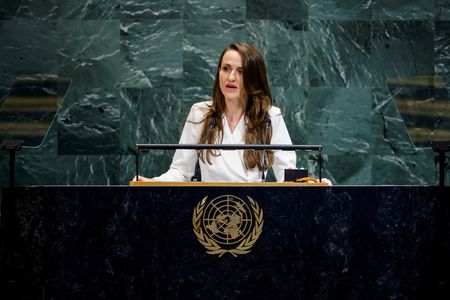LIVERPOOL (Reuters) -Britain’s finance minister Rachel Reeves plans to scrap a two-child limit on welfare payments to parents in her November 26 budget, the Guardian newspaper reported on Tuesday.
The budget is set to be a crucial moment in what has been a difficult start to Labour’s time in government following the party’s landslide election victory last year which ended 14 years out of power.
The party leadership is caught between a promise to maintain strict fiscal discipline, designed to keep nervy financial markets on side, and its mission to raise living standards across the country, which helped win voters at the election.
“We will reduce child poverty in this parliament,” Reeves said when asked about the report at an event on the sidelines of the Labour Party’s annual conference in Liverpool.
“But we’ll set out the policies in the budget. I think we’ve been pretty clear… that we can’t commit to policies without explaining where the money is going to come from.”
The Guardian said the budget was expected to highlight lifting the cap as one of the most effective measures to help pull hundreds of thousands of children out of poverty.
Reversing the two-child cap, which currently prevents most parents from claiming welfare payments for more than two children, would cost around 3 billion pounds ($4.03 billion) per year, according to the Institute for Fiscal Studies (IFS).
Previous research by the IFS suggested that scrapping the cap could lift 500,000 children out of absolute poverty.
The Guardian newspaper said the finance ministry was weighing options such as limiting extra benefits to three or four children, tapering payments by child, or lifting the cap only for working parents receiving income support.
After being elected in July 2024 Labour refused to scrap the two-child benefit cap, introduced by the previous Conservative government, arguing the spending reductions were necessary to fix a hole in government finances.
The government said in May this year it was considering whether to abolish the two-child limit as it reassessed several other unpopular policies.
($1 = 0.7437 pounds)
(Reporting by Alistair Smout in Liverpool and Catarina Demony; Editing by William James)











